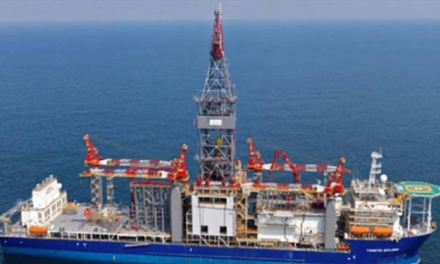In a press conference, Lebanese Energy Minister Joe Saddi reaffirmed the government’s commitment to reform, emphasizing that change must start with renewing leadership by appointing board members and enforcing existing laws.
He stressed the urgent need to establish a reformed regulatory authority, describing it as the first step in the ministry’s reform agenda.
Saddi highlighted that the creation of the regulatory authority is a key demand from international donors. He announced that within a week, the required qualifications for the authority’s members would be available at the Administrative Development Ministry, urging qualified Lebanese professionals to submit their applications.
Addressing Lebanon’s electricity crisis, Saddi acknowledged the high cost of power, attributing part of the problem to widespread electricity theft.
He pledged to take firm measures to curb illegal consumption, stating that areas, where theft is reduced, would receive additional hours of power supply even before broader reforms are implemented.
Despite the challenges, Saddi assured the public that the ministry is committed to making the necessary decisions to advance the sector.
“Reform does not happen overnight,” he said, promising continued efforts to improve Lebanon’s struggling energy sector.
On solar energy licenses, he noted that solar energy adoption is encouraged. “We are determined to form a regulatory body to initiate this project.”
—–
Iraq agrees to supply Lebanon with fuel for six months
Iraq has agreed to supply Lebanon with fuel for six more months, the office of Iraqi Prime Minister Mohammed Shia al-Sudani said in a statement on Saturday, renewing a deal meant to alleviate Lebanon’s acute power shortage.
Under the heavy fuel oil deal, first agreed in July 2021, Iraq provides the Lebanese government with the fuel in exchange for services including health care for Iraqi citizens.
Lebanon then swaps the heavy fuel oil for gas oil that it can use at its power stations.
These have operated for decades at partial capacity, but electricity provision has deteriorated further during Lebanon’s unprecedented financial crisis that has hit the state’s ability to buy fuel.
The Lebanese have long had to rely on expensive diesel generators to keep the lights on. High levels of pollution and rising cancer rates in Beirut have been attributed to these privately-owned generators.
In recent years, more people have resorted to renewable energy options such as solar panels, especially outside major cities.
Decades of corruption and mismanagement is blamed on the country’s electricity crisis, with successive governments failing to meet promises on solving the issue. The energy bill makes up most of Lebanon’s public debt.
In April 2023, the US Treasury imposed sanctions on two Lebanese businessmen Raymond and Teddy Rahme – who are also brothers – over a tainted fuel scandal which rocked the country.







